High-Level Dialogue: Indigenous Languages
UNESCO / ITU
Session 438
In the framework of the International Decade, UNESCO, in cooperation with the International Telecommunication Union (ITU) and in the context of the 2022 World Summit on the Information Society (WSIS) Forum, will organize a High-level dialogue on 1 June 2022 from 14.00 to 15.30 in Popov Room, ITU Tower, in Geneva, Switzerland.
The event will provide an open space for discussions and sharing of good practices on the promotion of linguistic diversity and multilingualism in cyberspace. A special focus will be placed on the access to multilingual information services, systems, and production of linguistically appropriate e-context for the speakers and signers of Indigenous languages. One of the outputs of the Global Action Plan of the International Decade of Indigenous (no 3) emphasises the importance of creation of favourable conditions for the digital empowerment and capacity building of digital competencies of Indigenous peoples. UN-system wide cooperation and public-private partnerships will be important to realize the capacity building initiatives, but also in promoting advocacy and awareness-raising as advocated in the World Summit on the Information Society (WSIS). The UNESCO’s Recommendation concerning the Promotion and Use of Multilingualism and Universal Access to Cyberspace, (2003) also provides for additional guidance for language digitization, documentation, and innovation.
In the second part of the event, the agenda will include a closing segment dedicated to the Award Ceremony of the winners of the WSIS Prize on ICTs and Indigenous Languages. This initiative is part of the WSIS Forum 2022 Special Track on ITCs and Indigenous Languages, co-organized by UNESCO, which launched a Hackathon inviting all interested stakeholders to ideate and create ICT solutions that contribute to the intergenerational transmission, preservation, revitalization, and promotion of Indigenous languages.
The High-level dialogue scheduled to take place on 1 June 2022 within WSIS Forum 2022, will primarily target Member States, Indigenous Peoples organizations, the UN system, civil society, researchers, digital activists, and representatives from the private sector. A global social media campaign will be carried out in conjunction with the high-level dialogue, to increase awareness about the International Decade and the WSIS Forum multi-stakeholder platform.
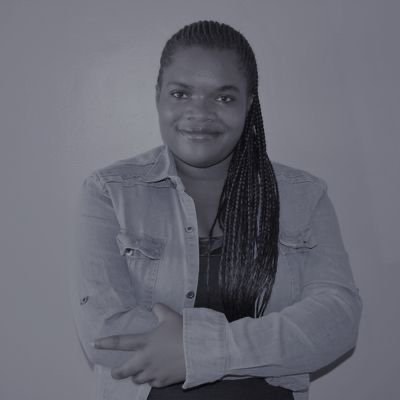
Rebecca is a techie, writer and researcher. She is currently a community engagement fellow at
Mozilla, working towards building an open voice dataset in Kiswahili to promote voice
technology. She is working on establishing and supporting diverse Kiswahili language and tech
communities along axes of gender, age, regional origin, accent and vernacular usage towards
building an open voice dataset in Kiswahili. Before joining Mozilla, Rebecca has been an
Internet Society fellow, an Afrisig fellow, a Google Policy fellow, a national geographic explorer
and a digital rights program officer at Paradigm Initiative. Rebecca is also an enthusiast of digital
inclusion and media information literacy.She is also the co-founder of the Arusha Women school
of Internet governance which she coordinates at Kuza steam generation,an ngo promoting digital
innovation and STEM
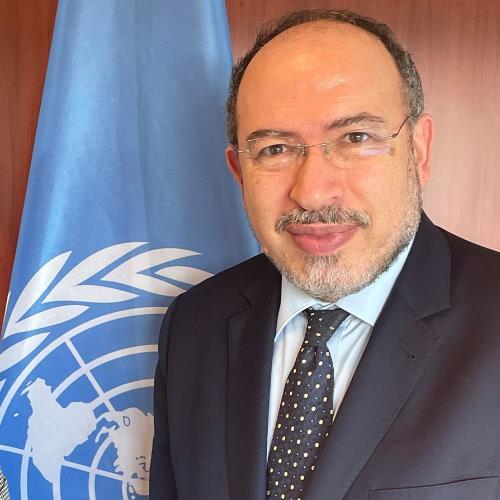
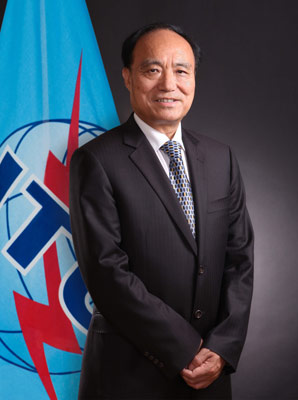
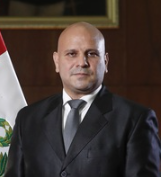

Holly Helton-Anishinaabeqwa, descendant of St. Croix Band of Lake Superior Chippewa from Wisconsin, United States of America, and a member of the Marten clan. As an indigenous youth growing up, I was never taught my language, due to the acts of assimilation and threat of boarding schools in my great-grandmother’s day. Today, my family is trying to revitalize the use of Anishinaabe in our household.
My Anishinaabe name is “Ogichidaakwe”, which means “Woman Who Speaks for the People”. I currently work for the Global Indigenous Languages Caucus to help Indigenous communities to preserve/revitalize their languages by setting up language programs. I’m currently learning my language Anishinaabe, as well as teaching my two sons. I’m a graduate of UW-Milwaukee with a bachelor’s degree in Anthropology with an emphasis on International relations and Indigenous Issues and working towards completing a master’s degree.
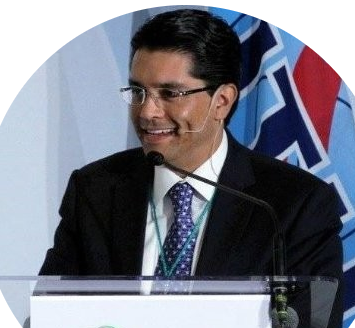
Alfonso Hernandez Maya has over 17 years of experience, both academic and professional, in the telecommunications sector. He is in charge of the General Coordination of User Policy at the Federal Telecommunications Institute (IFT).
His experience within the Federal Telecommunications Commission (now IFT), has allowed him to become an expert on several aspects of broadcasting and telecommunications regulatory issues, as well as on the overall operation of the public telecom’s sector. He has participated in several projects such as spectrum auctions, the design of public policies, analysis of law initiatives, supervision of operators' obligations, proposals of important sanctions, diagnosis of national mobile coverage, among others. In his current charge, he has proposed the creation of several tools and public policies to foster users’ empowerment. Most of these tools and policies are a successful model in Mexico and throughout the world, thus were recognized by the International Telecommunication Union (ITU) and REGULATEL, which is the most important LATAM forum for regulators.
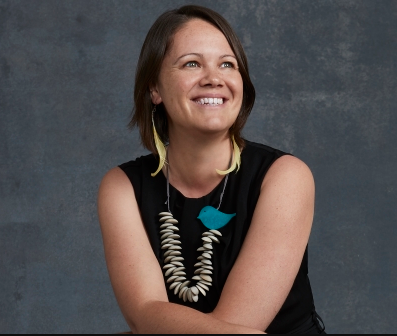
Mikaela Jade is a Cabrogal woman of the Dharug-speaking nation of Sydney. Her company, Indigital, founded in 2014, is Australia’s first Indigenous edu-tech company. Indigital is built on a belief that together we can use digital technologies to express 80,000 years of human knowledge while engaging our people in education that leads to skills, jobs, and wealth creation to build a stronger future for all.
Indigital Schools, the company’s flagship program, is an Elder-led, fully curriculum-integrated exploration of cultural expressions, heritage and knowledge through augmented and mixed reality production. It exists to preserve, access and share traditional knowledge, language and law. Mikaela and her company have achieved several honours.
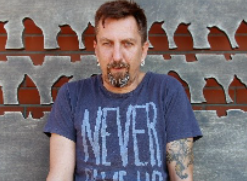
Dr. Valts Ernštreits is the Director of the University of Latvia Livonian institute and culture policy advisor to the Minister of Culture of the Republic of Latvia. For decades he has been involved in revitalization efforts of the Latvia’s indigenous language and one of the most endangered languages in the world – Livonian. Being Livonian himself he has been involved in numerous activities of safeguarding and developing Livonian cultural life and widening the possibilities of the use of Livonian.
Valts Ernštreits’ research interests include the building of digital resources and developing approaches for the research, safeguarding, and providing accessibility to the Livonian language and culture sources, as well as lexicography, language standardization and intangible heritage. He also represents Latvia at the Global Task Force for Making A Decade of Action for Indigenous Languages.
-
 C1. The role of governments and all stakeholders in the promotion of ICTs for development
C1. The role of governments and all stakeholders in the promotion of ICTs for development
-
 C3. Access to information and knowledge
C3. Access to information and knowledge
-
 C4. Capacity building
C4. Capacity building
-
 C6. Enabling environment
C6. Enabling environment
-
 C7. ICT applications: benefits in all aspects of life — E-government
C7. ICT applications: benefits in all aspects of life — E-government
-
 C8. Cultural diversity and identity, linguistic diversity and local content
C8. Cultural diversity and identity, linguistic diversity and local content
-
 C9. Media
C9. Media
-
 C11. International and regional cooperation
C11. International and regional cooperation
3) Access to information and knowledge
8) Cultural diversity and identity, linguistic diversity and local content
-
 Goal 8: Promote inclusive and sustainable economic growth, employment and decent work for all
Goal 8: Promote inclusive and sustainable economic growth, employment and decent work for all
-
 Goal 10: Reduce inequality within and among countries
Goal 10: Reduce inequality within and among countries
-
 Goal 11: Make cities inclusive, safe, resilient and sustainable
Goal 11: Make cities inclusive, safe, resilient and sustainable
-
 Goal 16: Promote just, peaceful and inclusive societies
Goal 16: Promote just, peaceful and inclusive societies
-
 Goal 17: Revitalize the global partnership for sustainable development
Goal 17: Revitalize the global partnership for sustainable development
Social media channels
Facebook:
@IndigenousLanguagesDecade
@UNESCO
Twitter:
@ILDecade
@UNESCO
Instagram:
@indigenouslanguages
@unesco
#IndigenousLanguages #WeAreIndigenous
Official website:
https://en.idil2022-2032.org/
https://fr.idil2022-2032.org/
https://es.idil2022-2032.org/
Resources
WSIS Hackathon on ICTs for Indigenous Languages
Global Action Plan of the IDIL2022-2032 (UNESCO, 41 C/INF.14)
The International Year of Indigenous Languages: mobilizing the international community to preserve, revitalize and promote indigenous languages / Flagship Report of the IYIL2019 (UNESCO, 2021)
International Decade of Indigenous Languages, 2022-2032: Global Action Plan: Note by the Secretariat (E/C.19/2022/5)
Contact Information
UNESCO IDIL2022-2032 Secretariat: indigenous.languages@unesco.org